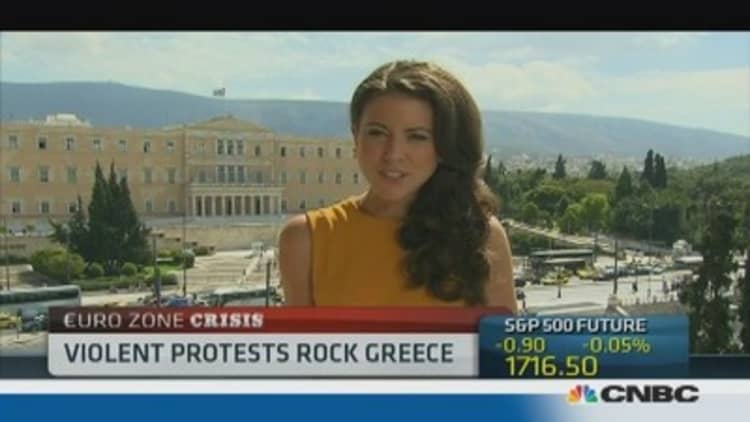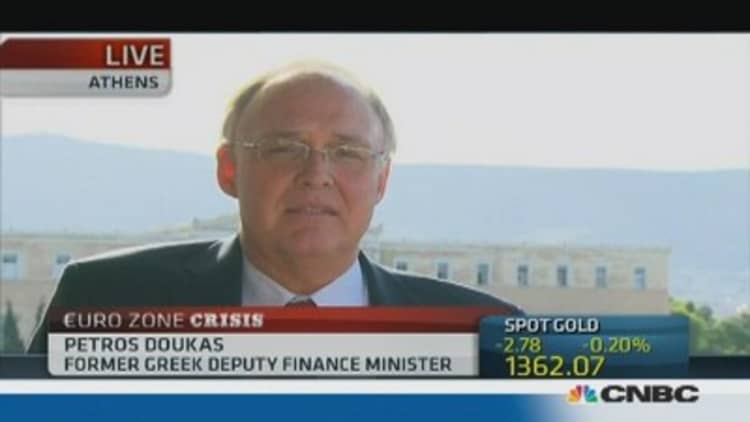
Greece's government has borne the brunt of strikes and protests this week, but the fate of the country could lie in the German ballot box.
Germany is Europe's largest economy and therefore the biggest contributor to the region's rescue fund, which makes it one of the most powerful decision-makers in how the region rescues its stricken economies. While German politicians have been in the grip of election campaigning, analysts and Europe-watchers have noticed that many of the big euro zone decisions have been put on hold.
"Following the German elections, they have to come up with a better plan for Greece," Petros Doukas, Greece's former deputy finance minister for the center-right New Democracy party, told CNBC.
Greece has been bailed out to the tune of nearly €240 billion since 2010 when it could no longer finance itself. The country has had to impose harsh spending cuts and reforms in return for these loans. These cuts and reforms have hit Greece's economy – unemployment currently stands at around 27 percent and the country is in its sixth year of recession.
Greece, along with the other bailed-out euro zone economies, has criticized Germany for insisting on the harsh austerity measures. Meanwhile, patience in Germany is wearing thin with the rescued countries, who have been criticized for getting themselves in trouble in the first place.
"If Germans had their salaries cut by 5-10% Berlin would be burning today," Doukas said.

The best solution for Greece's problems, the former minister said, would be a new "Marshall Plan" development program, with an emphasis on investing in business -- rather than a hand-out and a 30-40 percent debt haircut.
"We are very close to the end, but we need that extra mile of support," he said.
"Once this region has stabilized, the whole of Europe will be able to breathe freer."
(Read more: Why Greece needs 40% haircut on debt)
Greece's Radical Left leader Alexis Tsipras pointed out after a meeting with ECB board member Joerg Asmussen in Frankfurt that it is in Germany's interest to keep Greece going.
"I hear what Mrs Merkel and Mr Schaueble are saying, that you are paying taxes to save Greece. Yes, you are taxed but not to save Greece, but to save the Greek banks which in turn means that the German banks are being saved," he said.
His comments came as representatives of the troika of international lenders which bailed out Greece – the International Monetary Fund, European Central Bank and European Commission – inspect the country's commitment to the terms of the bailout. If Greece is found to have failed to meet the conditions of its loans, the troika can withhold further funds.
The killing of an anti-fascist activist earlier this week by a supporter of far-right party Golden Dawn has led to protests around the country.
(Read more: Violence on Greece's streets)
The increasing popularity of Golden Dawn may signify disgruntlement with the more mainstream parties. There has even been talk of outlawing the party, which has 18 members in a Greek Parliament of 300, following the killing.
"Outlawing Golden Dawn is not the answer, you will make heroes out of them," Doukas told CNBC.
He argued that high ratings for the party often come as an expression of frustration with the existing government, and do not translate into votes.
"They can't thwart our effort or economic policies," he added.
By CNBC's Catherine Boyle. Twitter: @cboylecnbc


